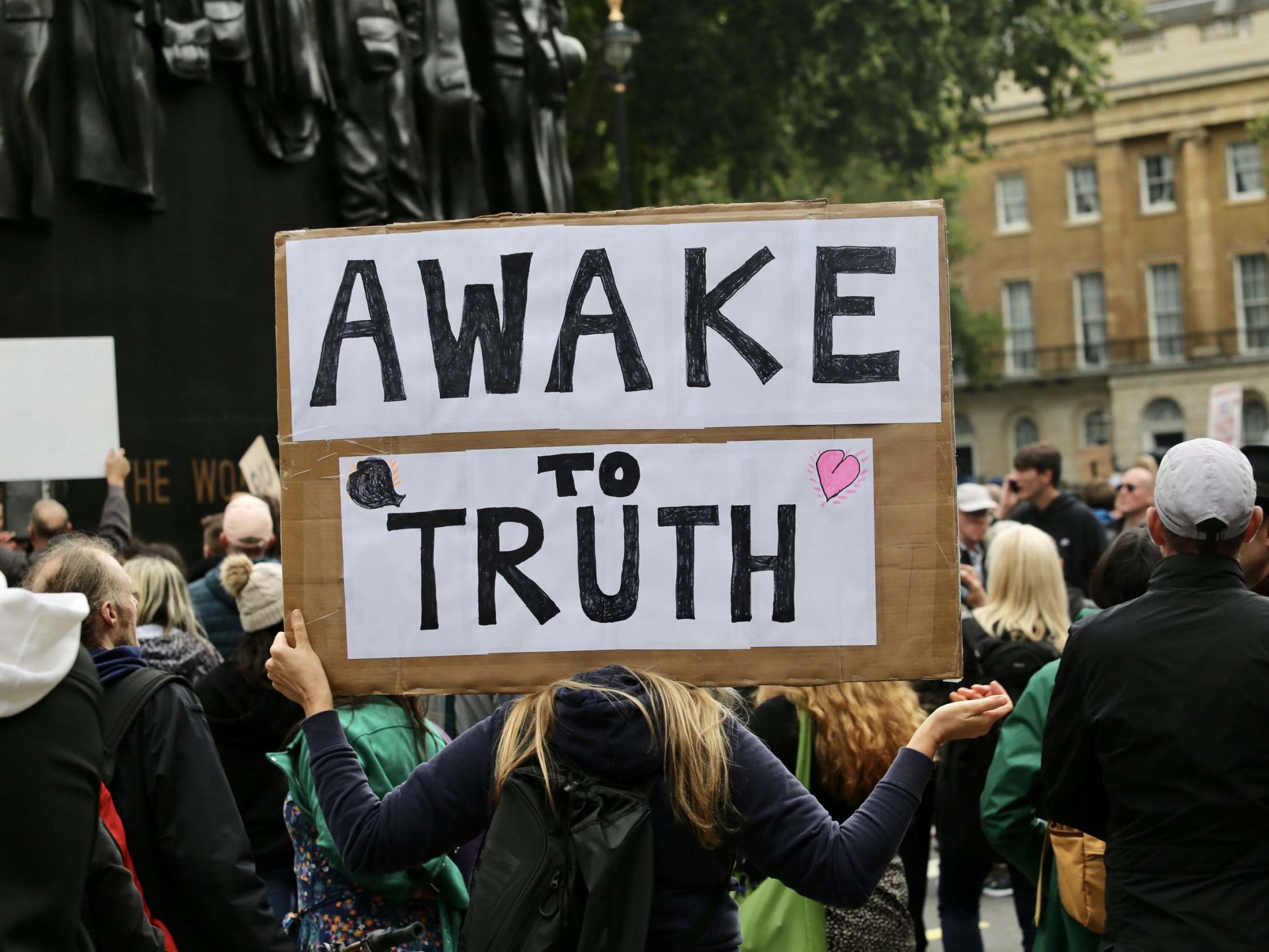Coronavirus: Social media firms ‘only taking down 2%’ of posts containing anti-vaccine misinformation, report finds
Warning vaccine could be ‘unsuccessful eradicating coronavirus because of lies told to people on social media’

Social media firms are only taking down 2 per cent of reported posts spreading misinformation about vaccines, a new report has suggested.
Research by the Centre for Countering Digital Hate (CCDH) and Restless Development found that posts claiming that vaccines are poisonous, cause cancer and even change people’s DNA were allowed to remain online.
Others asserted that the coronavirus pandemic had been faked to enforce mandatory vaccinations, or that flu jabs made people more susceptible to the virus.
Some were tied into wider conspiracy theories relating to Microsoft founder Bill Gates, 5G technology, and US medical official Dr Anthony Fauci.
In replies to some of the posts left online, social media users had threatened violence and murder against the figures, as well as the media, politicians and “big pharma”.
A report released on Thursday said that of 912 false posts from anti-vaccine sources reported to Facebook, Twitter, Instagram and YouTube, just 5 per cent were acted on.
In total, 2.3 per cent of the posts were removed, 0.3 per cent of the accounts were taken down, and 2.3 per cent of the posts were flagged as false but stayed online.
The CCDH warned that the audience of anti-vaxx pages on Facebook, Twitter and Google appeared to be growing rapidly during the pandemic.
It said there was evidence of “misinformation being deliberately targeted at black and ethnic minority audiences”, who have been shown to be more at risk from coronavirus in the UK.
Some of the theories highlighted in the report were voiced by protesters who gathered in London’s Trafalgar Square on Saturday to oppose lockdown restrictions, vaccines, 5G and supposed establishment plots.
Imran Ahmed, chief executive of the CCDH, said: “A coronavirus vaccine is our best hope of a return to normality. It would be a tragedy if it was unsuccessful in eradicating this disease because of lies told to people on social media.
“While we have made enormous sacrifices to keep our society safe, social media companies are undermining their effort by failing to enforce their own policies and claims to act on dangerous misinformation. Big tech has proven that they do not care, they will not act, and they only listen when their profits are on the line.
“The government must urgently legislate to ensure these platforms take down hate and misinformation that puts lives at risk.”
A group of doctors and campaigners have written to the culture, health and home secretaries calling for legislation “to prevent dangerous lies about health and medicine being spread to millions”.
They called for the government’s repeatedly delayed Online Harms Bill, which includes proposals on social media regulation, to be brought before parliament “at the earliest possible opportunity”.
The letter pointed to research warning that “anti-vaxx” propaganda was being viewed by more people as trials for a coronavirus vaccine progress.
“It is clear that social media companies cannot be relied upon to fix this issue themselves,” it added.
The warning came after the EU’s Counter-Terrorism Coordinator said that new forms of terrorism rooted in conspiracy theories could emerge after the coronavirus pandemic.
Gilles de Kerchove said beliefs that 5G technology was harmful had already caused a spate of vandalism, and that “given the amount of disinformation online, we could see more serious examples of this in the future”.
A spokesperson for Facebook said the company had “taken aggressive steps to limit the spread of misinformation about the virus”, removing more than 7 million posts between April and June and putting warning labels on 98 million others.
He added: “Additionally, we reduce vaccine misinformation visibility across our platforms, we don’t show it in search results or recommend it on Facebook or Instagram and we don’t allow it in any ads.”
Twitter said it had introduced measures such as a search prompt that directed users to credible vaccine information from the NHS but could not take action on every tweet.
“We're prioritising the removal of COVID-19 content when it has a call to action that could potentially cause harm,” it said in a statement.
“As we've said previously, we will not take enforcement action on every Tweet that contains incomplete or disputed information about COVID-19.
“Since introducing these new policies on March 18 and as we’ve doubled down on tech, our automated systems have challenged millions of accounts which were targeting discussions around COVID-19 with spammy or manipulative behaviours.”
Subscribe to Independent Premium to bookmark this article
Want to bookmark your favourite articles and stories to read or reference later? Start your Independent Premium subscription today.

Join our commenting forum
Join thought-provoking conversations, follow other Independent readers and see their replies